Looking at Europe’s social inequalities
The number of people at risk of poverty has increased in Europe over the last decade or so, undermining efforts to promote social cohesion across the continent. We spoke to Professor Rune Halvorsen about the work of the EUROSHIP project in building a deeper picture of social inequalities between countries and regions in Europe.
The European Union is committed to promoting social cohesion across its Member States, yet there remain significant disparities in income and opportunity at both the regional and national level, with people in some parts of the continent at higher risk of experiencing poverty and social exclusion. As the Scientific coordinator of the EUROSHIP project, Professor Rune Halvorsen is examining the welfare policies of different countries, looking to gain a wider perspective on social citizenship in Europe. “Are existing policies sufficient to protect people from the risk of poverty? How do existing policies frame people’s experiences?” he outlines. The project consortium brings together ten partners from across Europe to address these types of questions, using various data sources. “We are analysing policy documents and existing statistics, while we have also interviewed about 210 people who have experienced poverty in seven European countries,” continues Professor Halvorsen.
EUROSHIP project
This includes people who have been in and out of poverty throughout their lives, as well as others who may have fallen into poverty due to an accident or illness. Some of these people have relatively limited education, which Professor Halvorsen says leaves them at greater risk of falling into poverty, even if they are in work. “They find it more difficult to gain full-time employment, and to get a job with decent pay. So they are more often in temporary positions, on zero-hours contracts, and with unpredictable working hours and wages,” he explains. There are variations across Europe in the way people in this group are supported, with countries striking a different balance between carrot and stick. “Several countries have been eager to introduce so-called conditionalities for young people in return for the receipt of social assistance or minimum income benefits. For example showing that you have applied for a certain number of jobs,” says Professor Halvorsen.
The question is whether these conditionalities help young people find more stable employment and reduce poverty, or whether there should be a greater focus on education and training. There is also an ongoing debate across the EU about the extent to which governments
A further topic of interest in the project is the idea of a minimum income, which is the subject of intense debate in several European countries. The EU has considered adopting a legal framework directive on minimum income, to ensure a more even spread of income across

Social cohesion
The wider context here is the EU’s desire to foster and promote social cohesion in Europe. The project’s work represents an important contribution in this respect, providing a deeper picture of how social inequalities between the countries and regions in Europe are developing, and researchers have reached some clear findings. “While some continental European countries such as Poland and Hungary are coming closer to the standard of living in Northern and Western Europe, some southern European countries give more cause for concern. They are actually diverging more and more from Northern Europe,” acknowledges Professor Halvorsen. There is some degree of support amongst the general public for a guaranteed economic safety net, one of the recommendations to come out of the project’s work. This recommendation has been communicated to stakeholders at both the EU and national level throughout the project. “We have held several meetings to disseminate our findings,” continues Professor Halvorsen. Alongside these
meetings research has been ongoing into the underlying causes of poverty in Europe, which Professor Halvorsen says is set to continue beyond the project’s term. “There’s a clear need to better understand the driving mechanisms behind poverty, and the regional differences in Europe. There’s also a need to follow up and examine progress on implementing different aspects of the European Pillar of Social Rights (EPSR),” he says. “We are also interested in investigating the extent to which people at risk of poverty are involved in decision-making processes that affect them.”
The realistic goal for policy-makers dealing with questions around social citizenship is to reduce the risk of people falling into poverty, rather than to eliminate it alltogether. New monitoring measures are being developed in the project, which will play an important role in terms of assessing the impact of different policies on poverty levels. “These tools can also be useful for commission services and assessing progress towards the implementation of the EPSR, which was adopted by the EC in 2017,” says Professor Halvorsen.
End poverty in all its forms everywhere
EUROSHIP
Closing gaps in European social citizenship
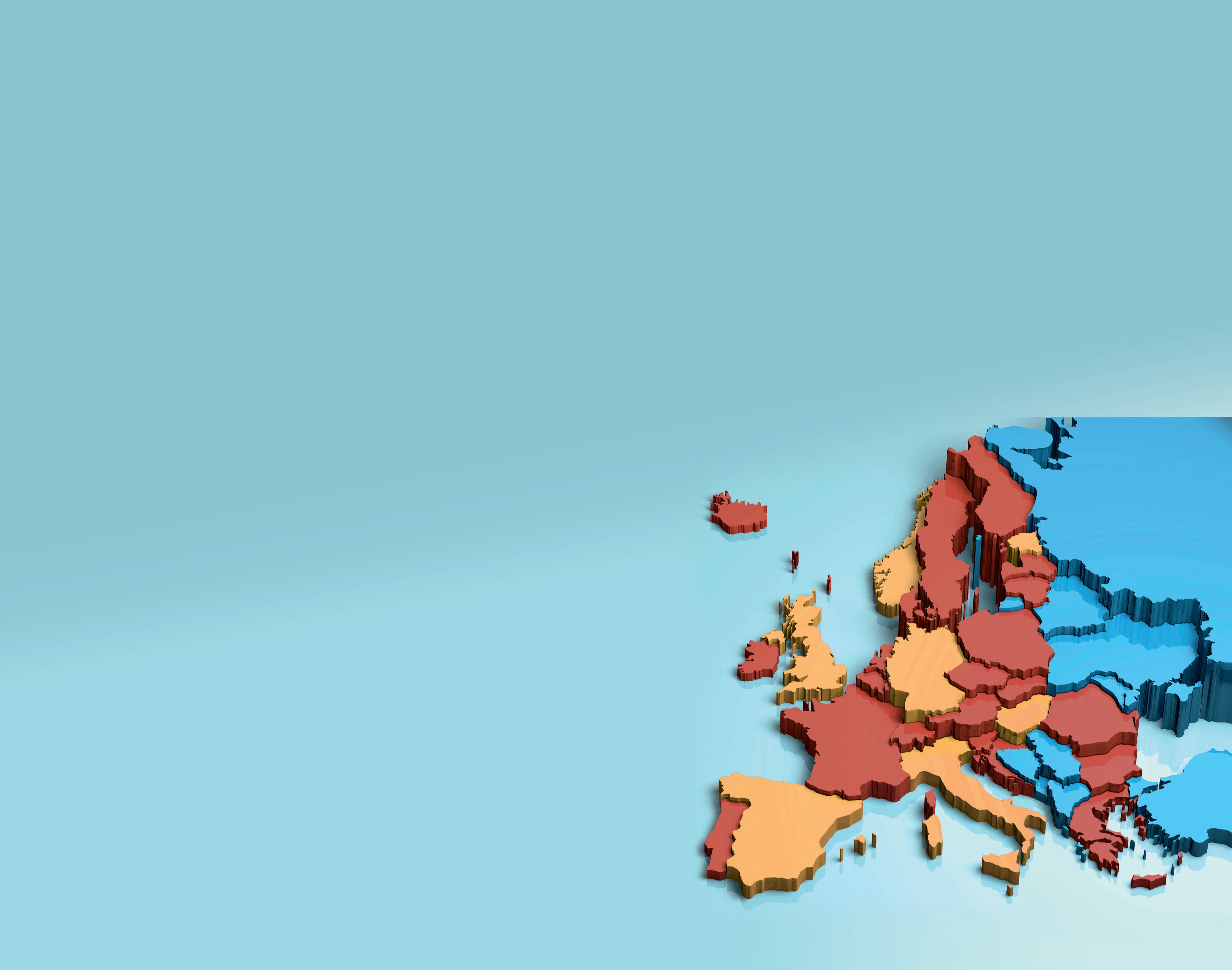
Project Objectives
EUROSHIP has produced original, gendersensitive and comparative knowledge about the effectiveness of social protection policies targeted at reducing poverty and social exclusion in Europe. Focal points have been the roles of minimum income schemes, digitalisation of work and welfare, and the social citizenship of low-income and education women and men.
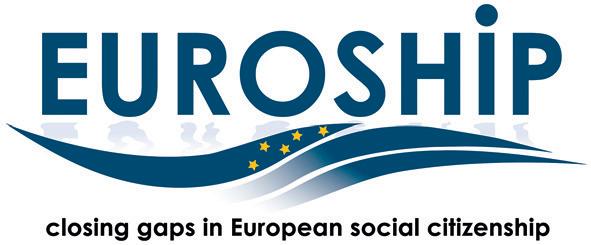
Project Funding
This project has received funding from the European Union’s Horizon 2020 research and innovation programme under grant agreement No. 870698.
Project Partners
• OsloMet - Oslo Metropolitan University (coordinator), Norway

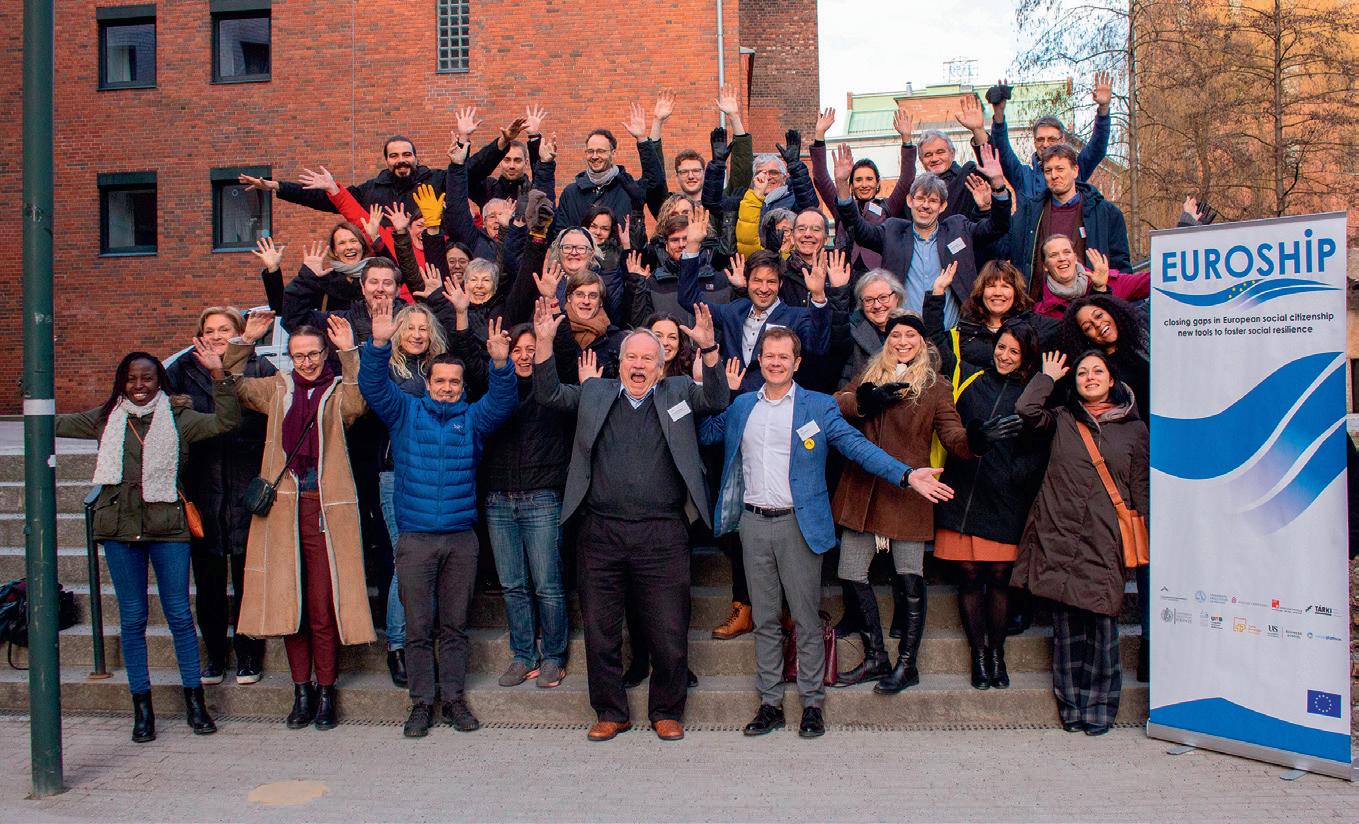
• University of Milan, Italy
• University of Tallinn, Estonia
• University of Hamburg, Germany
• TÁRKI Social Research Institute, Hungary
• University of Florence, Italy
• Autonomous University of Barcelona, Spain
• Swiss Paraplegic Research, Switzerland
• University of Sussex, United Kingdom
Promote sustained, inclusive and sustainable economic growth, full and productive employment and decent work for all
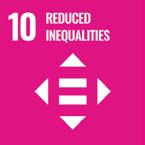
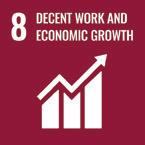
Reduce
EUROSHIP contributes to Europe’s commitment to the Sustainable Development Goals in general and in particular goals:
• Social Platform, Belgium https://euroship-research.eu/partners/
Contact Details
Professor Rune Halvorsen
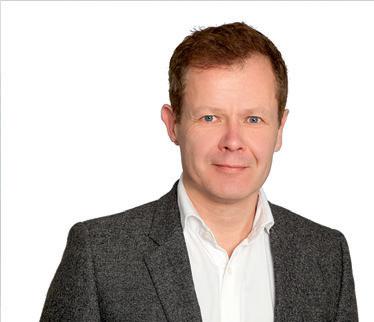
Scientific coordinator of EUROSHIP Department of Social Work, Child Welfare and Social Policy

OsloMet - Oslo Metropolitan University T: +47 67 23 80 78 E: runeh@oslomet.no : @EUROSHIP_EU W: euroship-research.eu
should invest in active labour market policy measures and social services designed to help people find work. “These might represent a cost in the short-term, but they may pay long-term dividends,” points out Professor Halvorsen. Finding a job is particularly challenging for those with care obligations, another topic Professor Halvorsen and his colleagues are investigating. “It can be difficult for people with unpredictable working hours to manage any care obligations,” he says.
“Single parents are in a particularly difficult or precarious situation in that regard. Here we have found wide variations between countries with respect to the availability of nurseries and support for single parents.”
Europe, but there is a certain reluctance among some Member States, related to the common perception that people in poverty are at least partly the authors of their own misfortune. “For a long time there has been a profound ambivalence towards the poor, and a hesitation about the idea of introducing more generous minimum income protection,” outlines Professor Halvorsen. The current cost of living crisis challenges this perception, with disposable incomes being sharply squeezed, and to some extent this strengthens the case for concerted action.
“The number of people at risk of poverty has increased in Europe over the last decade or so,” says Professor Halvorsen.
Rune Halvorsen, PhD in sociology, is professor of social policy at OsloMet - Oslo Metropolitan University. His main interests are European and comparative welfare policy, social citizenship, EU social policy, and citizenship movements. Halvorsen’s central concern is to contribute new knowledge for the future social Europe.
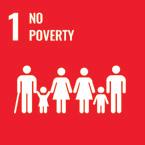
Are existing policies sufficient to protect people from the risk of poverty? We are analysing policy documents and existing statistics, while we have also interviewed about 210 people who have experienced poverty.Rune Halvorsen, PhD The EUROSHIP team met in Oslo to kick-off the project in February 2020.
